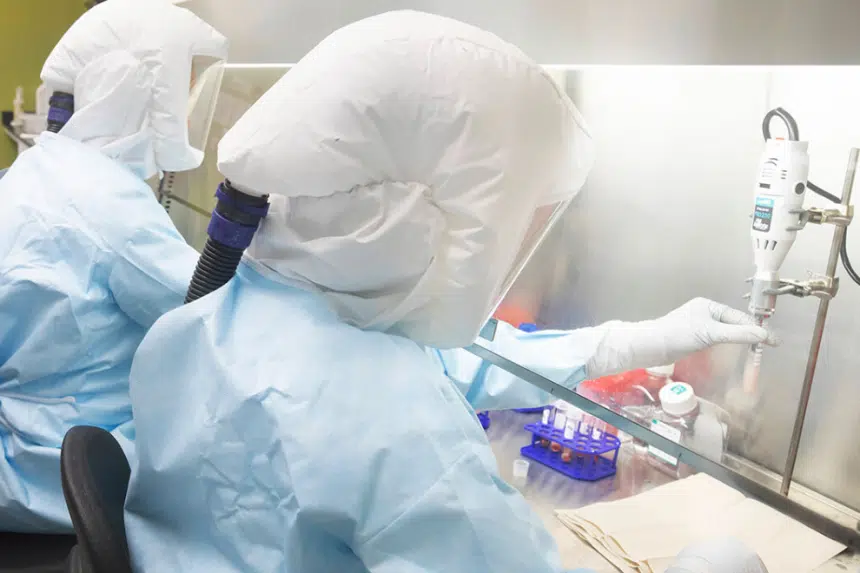The Vaccine and Infectious Disease Organization — International Vaccine Centre (VIDO-InterVac) on the University of Saskatchewan campus has been at the forefront when it comes to developing a vaccine for COVID-19.
On Monday, the federal government announced a $23.3-million funding boost for the centre.
More than half of that funding — $12 million — will go toward the construction of a new lab to increase Canada’s manufacturing capacity of new vaccines.
Paul Hodgson, the associate director of business development at Vido-InterVac, says this lab has been years in the making.
“We’ve talked to the government over the years, saying Canada is losing the ability to have self-sufficiency for vaccine operations and in the event of some sort of emergency pandemic, we’re going to be at risk of not being able to produce vaccines for our own country,” said Hodgson.
Hodgson said the market for these vaccines is international but says in the event of a pandemic, things can change quickly, so it’s important our country is prepared.
“As we’ve already seen, if something significant hits, there’s a very large chance that everything is going to change,” said Hodgson. “Countries will start to shut their borders, life will be shut down, so there will be potential that the global marketplace completely changes.
“So I think having something in Canada that can actually produce vaccines is very, very important. It’s almost like emergency preparedness.”
Hodgson said VIDO-InterVac is currently testing a COVID-19 vaccine on animals.
He said the lab has been working on coronaviruses for years and took what it learned from other strains to develop the vaccine.
“We took that understanding to quickly make a vaccine for this one. We’ve actually already vaccinated animals, so we were the first in Canada to isolate the coronavirus,” said Hodgson.
He said lab officials should know in four to six weeks if this protects the animals.
Even if it works, and Hodgson believes it will, there are still many regulatory hurdles to jump. He said it is a very regimented process before testing can be done on humans, so he said an actual human vaccine is likely still 12 to 18 months away.







